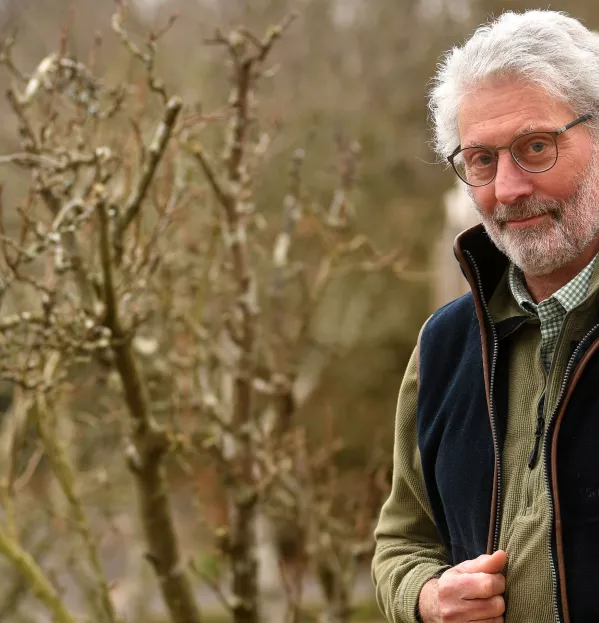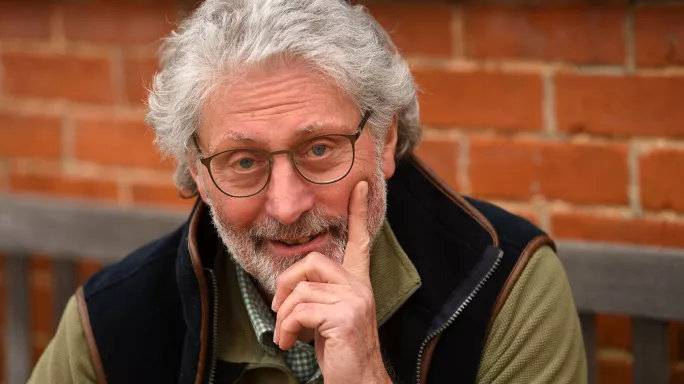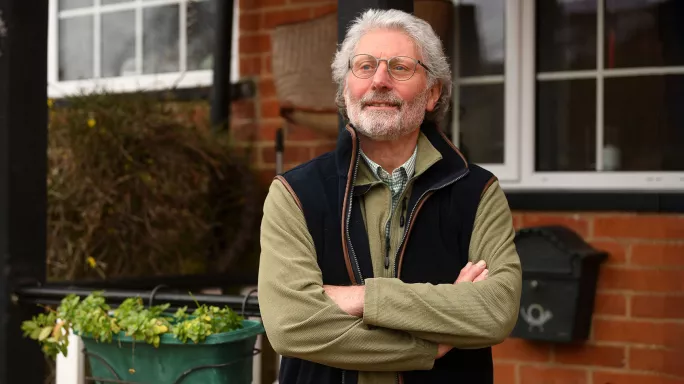
- Home
- Teaching & Learning
- General
- Why research needs to reconnect to the classroom
Why research needs to reconnect to the classroom

For the first time in years, Peter Blatchford has had a chance to really think about education.
In 2017, he was awarded a Leverhulme Major Research Fellowship, which gives recipients an opportunity to take time out from their day job and devote themselves to their research.
It was, says Blatchford, who is emeritus professor in psychology and education at UCL Institute of Education (IOE), a “great opportunity” for him to reflect on decades of work seeking to better understand social and developmental processes in classroom settings.
In the course of his career, Blatchford has published an impressive 18 books and more than 100 peer-reviewed papers and book chapters on topics including class size, group work, break times and pupils’ interactions, and the deployment of teaching assistants.
Looking back on all of this now, he’s spotted what he believes is a problem with the direction that educational research is going in. Despite a boom in the use of evidence to underpin policy and practice, Blatchford has a “growing sense” that researchers have “stopped looking closely at what happens in classrooms”, and this means that much of the research being published isn’t as helpful to schools as it could be.
The solution, he suggests, is to develop a “contextual framework to understand what’s going on in classrooms” along with methods that enable researchers to put that framework to use.
What might that look like in practice, though? And what does it all mean for how schools consume research? We spoke to Blatchford to find out.
In your view, there’s something going wrong with education research. What is it?
My sense is that we have turned away from what happens in classrooms.
I’ve been doing this long enough to see some historical trends. In the 1970s there was quite a tradition of observational work, both quantitative and qualitative. But that’s really gone.
Recently there’s been a lot of work on “what works”. So a lot of meta-analyses and randomised controlled trials, which you can put up on a chart and say, “OK, we’ll do a bit of that or a bit of that” - you know, metacognitive learning or collaborative group work or whatever it might be.
Now, that’s obviously important, but it seems to me that it’s not based on what goes on within the classroom. And the problem is that something might not necessarily work very well if you haven’t thought carefully about what happens, say, if you’ve got a large class of 35 kids. In that situation, any sort of individual, one-to-one intervention is going to struggle somewhat.
Why do you think we have seen this shift in how research is conducted?
My focus, really, is on learning in schools and what’s effective about learning and teaching in schools.
And when you look at what the key explanations are for what works in schools, it’s typically at a more macro level. It’s what’s on the curriculum, it’s governance and assessment, it’s school structures.
Psychology is getting in on the act to talk about individual characteristics: personality, intelligence, motivation and so on. And then you get the more sociological way into it, in terms of social class, parental interest and all of that.
These things are all very important, but my view is that they don’t get to grips with what I think is the most important thing, which is the immediate classroom context and interactions and relationships within the classroom: we might say the more proximal as opposed to distal factors.
“There’s a marked absence of people going into classrooms and getting good quality work on what’s going on”
Another reason is that there’s a lot of energy in educational research towards working with big datasets. There’s been a marked move towards analysing the Programme for International Student Assessment (Pisa) and so on; big meta-analyses, like John Hattie‘s work, putting everything together.
But once again, it seems to me all of that is at a general level. And actually, when you look at the data used, it’s often secondary data. There’s a marked absence of people going into classrooms and getting good quality work on what’s going on.
And then the third way into thinking about why there’s been this drop-off of interest in the classroom is this idea of focusing on “what works”, through things like the Education Endowment Foundation (EEF) toolkits.
Most educational research now is not funded by the government directly. The big class-size project we had and the one on teaching assistants, those were funded by the government of the day. But, as far as I understand it, they don’t fund research directly any more.
What effect is all of this having on teachers?
In a way, it’s almost taking the power away from teachers a bit. Because it’s saying, “We’re the experts, we know what works and you could try this,” without thinking about the incredibly complex task that teaching is and all the complex decisions teachers are making, within the context of working with a certain group of kids, with the relationships they’ve got.

I haven’t been into schools so much recently, but I’ve always been astounded by the amazing relationships that have been struck up between teachers and kids. It’s such a difficult thing with 30 kids just to keep them with you. And sometimes you go into a classroom and it’s such a positive vibe. And that is so easily overlooked.
In a sense, we need to say, “Let’s go from the ground up”, rather than the external being imposed.
It occurs to me that sometimes people are suggesting initiatives that we might not actually need, because in various ways what you want to happen is going on anyway.
But how do you know, unless you look?
How does research need to change to better speak to what really happens in classrooms?
We need to think about what a conceptual framework to understand what’s going on in classrooms would look like. This is where this work I did for the Leverhulme Fellowship comes into it, because I started to develop something around this.
It starts with the idea of social pedagogy, which I wrote about with Maurice Galton and Peter Kutnick, but I’ve moved more to the idea of an “eco-relational” approach. That involves two elements: one is the contextual and the other is the relational.
The first part is the idea that learning is really best understood as being something that occurs within an immediate context. If you take a teacher and a pupil, you need to be aware of the context within which they’re working, which has an impact on what they do and how they adapt to it.
So, for example, if you think about the work we did on group work: typically what we see is that kids are in groups but not working as a group. So there’s a kind of misalignment of the context with the pedagogical intention. That’s quite important, and often completely overlooked.
That’s the contextual side. Then there’s the relational side. I’ve been reviewing a lot of literature on teacher-pupil interactions and how these affect the quality of teaching. But what gets overlooked here are the other relationships in the classroom: the ones that exist between the children. For example, if we’re putting stress on children working well together and collaborating, at the heart of that is developing the skills that children need to work together.
This isn’t anything I’ve got any evidence for, but when you think about the kinds of skills that children show on the playground, in terms of conflict management, in terms of trust, reciprocity - these are the skills that we find people are using in group work.
I don’t want to overdo it, but I think there is a lot of potential in trying to understand more about the connection between the informal and the formal aspects of kids working together, both of which are rather overlooked.
And then the final bit of this eco-relational thing is the idea of the classroom as a system. By that I mean the interconnectedness of everything that’s going on, and the ease with which we tend to cut it up - you know, trying to think about what the teacher can do rather than the context of the classroom itself.
How do we capture and make sense of that interconnectedness?
Of course, we need methods to get at all of this, and I’m finding myself more and more championing the idea of something that seems to have gone into a steep decline, which is close observations of what goes on.
When I’ve looked back on the work we’ve done, I’ve realised that a big feature of our work has been systematic classroom observations. That allows you to look at the interconnectedness: for example, the size of the group in relation to what’s going on within the classroom; the size of the class in relation to the amount of individual attention between teachers and children; and so on.

We’ve got these moment-by-moment observations, which are incredibly labour-intensive, it has to be said, which may be one reason why it’s not so prevalent now. But I think it’s very important. That’s what I’m looking at now. We need frameworks for understanding the classroom contexts and methods for doing that.
And then the next bit would be applying that. The final bit of the story is, well, what can we do about it?
What does that ‘final bit of the story’ look like for some of the topics you’ve researched in the past?
In the case of the class-size work, it’s a highly contested field. This is something I explore in my 2020 book with Anthony Russell, Rethinking Class Size, which is free to download from UCL Press.
People argue about whether small classes are better or not, and a lot of people look to research, a lot of meta-analyses, which typically looks at the relationship between some measure of class size on the one hand and some measure of pupil attainment on the other. And what people find is that there’s a very modest, if any, relationship.
Our view is that that’s inadequate, because it’s only part of the picture and it commits what we’ve called the “fallacy of the single cause”: the idea that you can take two things in isolation without thinking about what goes on around them.
What our book does is look at how class size affects the relationships between the teacher and the pupils, between pupils and each other, the tasks that go on (there’s less investigative and practical work in large classes because it’s more difficult to do), and effects on teachers and their workloads. If you’ve got 35 kids, and you’ve got to mark two pieces of work every day, you can do the maths, it gets completely crazy.
So, again, it’s making the point that it’s the interconnectedness of all of these things that matters. Class size is not in itself important; it’s how it interconnects with everything else.
I’ll give you an example of why this is important. Quite often teachers in small classes might not have a big effect. That’s because they haven’t changed their style of teaching to take advantage of the fact that they’ve got fewer children. And when they do change it, they typically maximise the amount of individual attention, which may not actually be the right way to do it. You might need a more group-based thing. That might be more profitable. In that situation, you can maximise that.
“I’ve often had to remind people that teachers bring a lot to the table that we can very easily overlook”
Another example would be why, in a large class, you don’t get massively deleterious effects. What we found is that a lot of the lack of effect is driven by the fact that teachers [with large classes] are driving themselves way over the top in terms of their workload. So they’re hearing children read at lunchtime in primary schools. They’re doing loads of marking after hours, and there’s a lot of stress involved. In a sense, it doesn’t have an impact on pupil attainment because of the deleterious effects on teachers themselves. So it’s understanding this particular educational issue in terms of the classroom as a whole.
Similarly, if you apply this to thinking about group work, you can better understand why the idea of just putting children together in a group and hoping they work together is misguided.
That’s what often happens, in our experience. Teachers think, “Oh, we’ll do some group work.” They put children into groups and give them a task to do. But without the preparation of the children for working together, without the appropriate tasks, or if you simply position them sitting along a table, not really facing each other, it’s just not going to work.
Given all of this, what would be your advice to schools on how they use research findings to improve practice?
It goes without saying that I’m firmly of the view that we need evidence-based stuff, but there also needs to be a degree of autonomy.
Yes, research can tell us the sorts of things we can do, but don’t lose sight of the fact that you’ve got to integrate that into what you are doing already.
Part of the growing professionalisation of teaching is not just taking things but actually thinking carefully about what they mean.
It’s different to medicine, where there are all sorts of trials and clever work going on, and then you can just do it. Human development and education are not like that; they’re very interpersonal and relational. It’s not just a matter of applying an intervention that seems to work. That’s what we’ve lost sight of.
Over the years I’ve often had to remind people that teachers, albeit implicitly, bring a lot to the table that we can very easily overlook - as do schools.
Of course, there’s also the issue of the relationship between what the teacher does and what happens at the school level. You can’t just have high-quality teaching and teachers doing their particular thing in the classroom. It has to be happening overall for it to work properly.
For the latest research, pedagogy and practical classroom advice delivered directly to your inbox every week, sign up to our Teaching Essentials newsletter
You need a Tes subscription to read this article
Subscribe now to read this article and get other subscriber-only content:
- Unlimited access to all Tes magazine content
- Exclusive subscriber-only stories
- Award-winning email newsletters
- Unlimited access to all Tes magazine content
- Exclusive subscriber-only stories
- Award-winning email newsletters
You need a subscription to read this article
Subscribe now to read this article and get other subscriber-only content, including:
- Unlimited access to all Tes magazine content
- Exclusive subscriber-only stories
- Award-winning email newsletters
- Unlimited access to all Tes magazine content
- Exclusive subscriber-only stories
- Award-winning email newsletters
topics in this article



